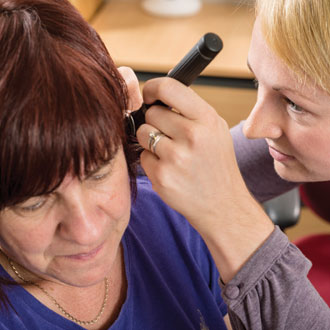Six tips for out-of-hours consultations

There are a number of reasons why out-of-hours and urgent care provision carries a significant risk of complaints and claims. The difficulties involved in managing an unfamiliar patient, often without access to full medical records or the luxury of time and facilities to fully investigate the presenting problems. The fact that patients are often anxious or upset and may struggle to understand and retain advice. The urgent nature of the consultation, which may mean that building an effective doctor patient relationship can be difficult.
Some of these difficulties are reflected in themes behind the complaints and claims we see. These include allegations about communication or attitude of medical staff, inadequate patient examination, failure to perform a home visit and concerns about the telephone advice given.
Cases not only arise more often but claims from this type of work are also more costly to settle. For example, out-of-hours GP claims settled by the MDU in the last two years were twice as likely to result in compensation being paid than claims arising from routine ‘scheduled’ consultations and the average level of compensation paid was almost twice as high. This may be a reflection of the types of conditions that can have serious consequences for patients if not diagnosed or treated appropriately – myocardial infarction, appendicitis and meningitis for example.
This additional risk has to be reflected in the cost of indemnity for out-of-hours work although from our experience, most GPs are doing no more than one or two sessions alongside their in-house commitments. MDU members in this situation will generally pay a similar subscription to a colleague working the same number of sessions in hours.
The following six tips may help to mitigate the risks when managing patients outside normal working hours and help you to explain and justify your decisions and actions if there is a complaint or claim.
1. Document telephone triage
Although calls are often recorded, it is still important to make the same detailed clinical note that would be expected of a face-to-face consultation. Other clinical staff may well rely on your records when providing care and will rarely have access to recorded calls. Safety-netting advice often comes under scrutiny in claims and so we advise that you provide this in very clear terms and document it as comprehensively as possible.
2. Be familiar with home visit protocols
It is not necessary or practical to agree to every request for a visit but out-of-hours providers should have clear protocols to follow which will ensure your decision and reasoning is documented, as well as any safety netting advice provided. Where a visit is necessary, be sure to double check the address details and telephone number as there is a greater scope for misunderstandings when the patient or carer is distressed or confused.
3. Focus on communication
You will probably have to work harder to build a rapport with a patient during an out-of-hours consultation because the patient is more anxious than usual and you will probably be unfamiliar to them. Perceived rudeness or an off-hand manner is a frequent trigger for a complaint, usually when there has been an unforeseen adverse outcome.
Effective verbal and non-verbal communication will help patients feel at ease and help you elicit information about their history, symptoms and current medication. In the MDU’s experience, the best communicators will consider body language (by not standing over the patient, for example); listen without interrupting; avoid medical jargon; actively look for signs that the patient is confused or distressed; and ask them to repeat back to check their understanding.
4. Record positive and negative findings
The very nature of GP work means that diagnoses will occasionally be missed or seemingly delayed. However, making sure that a careful history and appropriate examination are undertaken and recorded will help to avoid misdiagnoses and can help to show that the management was of a reasonable standard. Document the relevant negative, as well as positive, findings, such as absence of neck stiffness in a febrile patient.
5. Plan ahead
It can be difficult to rule out a serious underlying illness on first examination and so it is important to ensure patients or relatives understand the likely response time for symptoms to resolve or medication to take effect and what to do if their condition does not improve. It’s also worth writing these instructions down for patient’s future reference. This advice, along with your management plan, should be recorded in case the patient contacts the out-of-hours service again. If the patient requires follow up by their own GP practice, ensure this information is passed on promptly.
6. Provide an explanation and apology if something goes wrong
You may be unaware of an adverse outcome until informed of the complaint or claim by the organising healthcare provider. Even if you don’t have an early opportunity to see the patient and discuss what happened, it is important that patients are provided with an explanation and an apology as soon as possible. Adverse incidents should also be reviewed, perhaps through a significant event audit, to see if changes can be made to benefit all patients.









